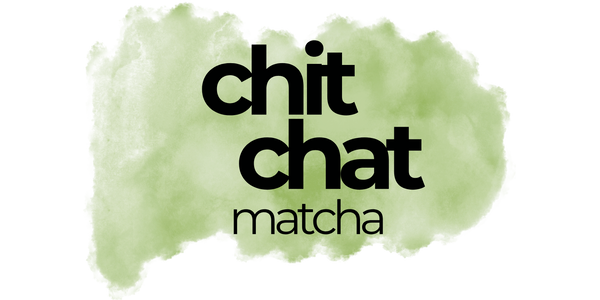
Is matcha sustainable?
Matcha not only represents conscious enjoyment and natural energy—it also represents a lifestyle that combines mindfulness, health, and sustainability. But what makes matcha sustainable , what should you look for when buying it, and how can a cup of green tea contribute to a more conscious lifestyle?
In this article, you'll learn everything about matcha and sustainability —from cultivation, production, and packaging to your own consumption habits.
What does sustainable matcha mean?
Not all green tea is the same – and not all matcha is automatically sustainable. Genuine, high-quality matcha comes from Japan and is produced traditionally in small tea gardens. Environmental protection, fair working conditions, and quality play a central role.
Sustainable Matcha means:
-
Organically certified cultivation without pesticides or chemicals
-
Gentle harvesting and processing
-
Fair, transparent supply chains
-
Environmentally friendly packaging and transport routes
-
Supporting local tea farmers and handicrafts
The journey from the tea plant to the matcha tin
1. Organic farming & shading
Sustainable matcha comes from organic cultivation. The tea plants grow naturally, without chemical pesticides. They are shaded for a few weeks before harvest, which increases the chlorophyll content and enhances the distinctive flavor.
Advantage: Healthy soils, intact ecosystems and greater biodiversity in the fields.
2. Manual harvesting & traditional processing
Only the tenderest leaves from the first spring harvest are used—picked by hand and then processed into tencha . This is slowly ground into fine matcha on granite stone mills.
Advantage: Resource-saving, low-energy and without industrial mass production.
3. Short, transparent supply chain
Sustainable matcha producers work directly with Japanese tea farmers—often family-run businesses with generational expertise. Direct sourcing and fair prices promote social and economic balance.
Matcha vs. coffee – the more sustainable stimulant?
Compared to coffee, matcha has a significantly better environmental footprint:
| criterion | Matcha | Coffee |
|---|---|---|
| Water consumption | Lower | Very high (especially Arabica) |
| Cultivation area | Less space required | High space requirements |
| processing | Gentle, minimal processing | Highly processed, often industrial |
| Origin | Japan with strict regulations | Often from monocultures |
So, for those who consume consciously and pay attention to their environmental footprint, matcha is a sustainable alternative to coffee – with many health benefits.
Packaging, shipping & zero waste – what you should pay attention to
Sustainable consumption doesn't stop at the contents— packaging and shipping also play a role. When buying matcha, keep in mind:
-
Recyclable or reusable cans
-
Plastic-free or compostable refill bags
-
Climate-neutral shipping and short supply chains
-
No individual portions or unnecessary packaging
Chit Chat Matcha relies on high-quality, reusable containers and carefully selected shipping solutions – so that not only your body but also the environment benefits.
How to sustainably integrate matcha into your everyday life
1. Consume consciously:
Don't drink matcha casually, but as a ritual. This way, you'll have less waste—and more appreciation.
2. Think zero waste:
Reuse empty containers – for example, as storage containers, plant pots, or for DIY cosmetics.
3. Combine regionally:
Matcha pairs perfectly with regional ingredients: oat milk, local fruit, organic muesli, or seasonal herbs.
4. Shop mindfully:
Choose organic matcha from trusted brands that operate transparently and practice sustainability.
Conclusion: Matcha as part of a sustainable lifestyle
Matcha stands for more than just healthy energy. It symbolizes mindfulness, quality, and conscious consumption. Those who choose high-quality, organic, and fairly produced matcha not only support their own body—but also the environment, people, and the future.
Chit Chat Matcha combines organic quality, taste, and sustainability – from the tea garden to your cup.
Enjoy consciously now:
Drink matcha, protect the environment, live a balanced life – discover Chit Chat Matcha.
